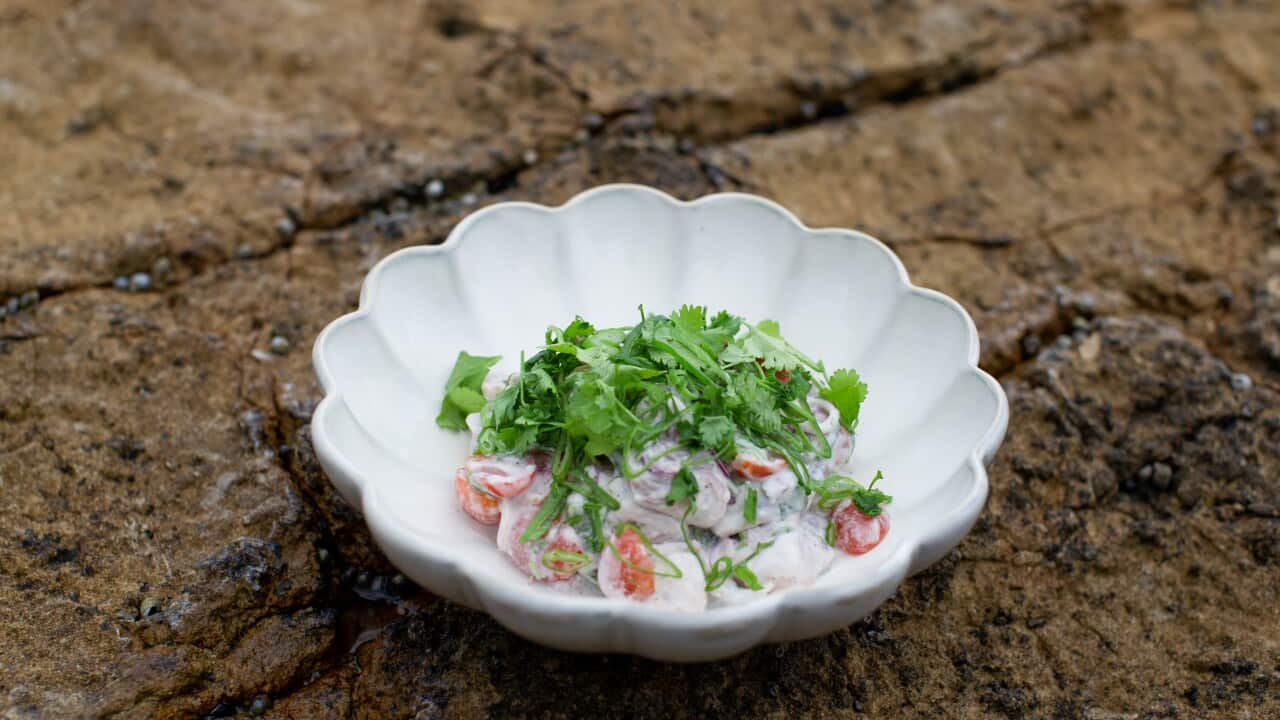serves
2-4
prep
30 minutes
difficulty
Easy
serves
2-4
people
preparation
30
minutes
difficulty
Easy
level
Ingredients
- 1 wrasse and/or leatherjacket, cleaned and filleted (see Note)
- Sea salt flakes
- 2-3 limes, juiced
- ¼ red onion, thinly sliced
- 12 cherry tomatoes, halved
- 120 ml coconut cream
- A couple of drops fermented chilli sauce
- ¼ small bunch coriander, leaves picked
- 1 spring onion, thinly sliced on the diagonal
Instructions
- Ensure the fish fillets are free of any skin and bones, then roughly chop into 1.5-2 cm chunks. Place into a medium bowl, sprinkle with sea salt flakes, then lightly toss and set aside.
- Add the lime juice, onion and tomatoes to the fish and toss gently to combine. Add the coconut cream and chilli sauce and gently combine. Season to taste, then spoon into a medium serving bowl. Top with the picked coriander leaves and spring onion and serve.
Note
- Wrasse tend to be larger than leather jackets, so for this recipe, you could use a 400 g leatherjacket, a 600-800 g wrasse, or a mixture of both, allocating 100 g fish fillet per person.
- If you prefer a more cured fish texture, allow the mixture to marinate in the lime juice for a little longer before serving.
Watch how to make this recipe on Episode 6 of A Girl's Guide To Hunting Fishing and Wild Cooking Season 2, streaming free on SBS On Demand.
Cook's Notes
Oven temperatures are for conventional; if using fan-forced (convection), reduce the temperature by 20˚C. | We use Australian tablespoons and cups: 1 teaspoon equals 5 ml; 1 tablespoon equals 20 ml; 1 cup equals 250 ml. | All herbs are fresh (unless specified) and cups are lightly packed. | All vegetables are medium size and peeled, unless specified. | All eggs are 55-60 g, unless specified.

